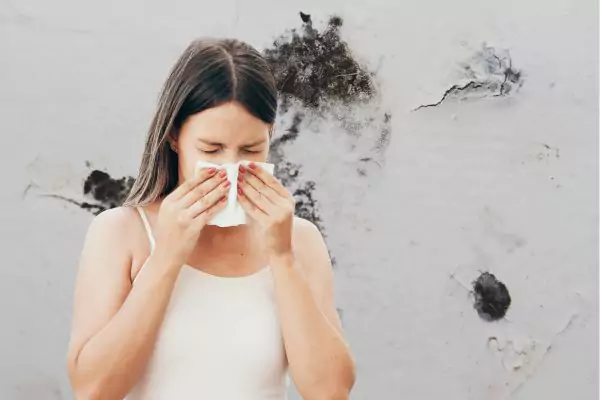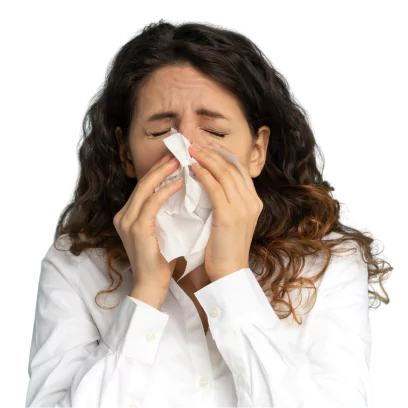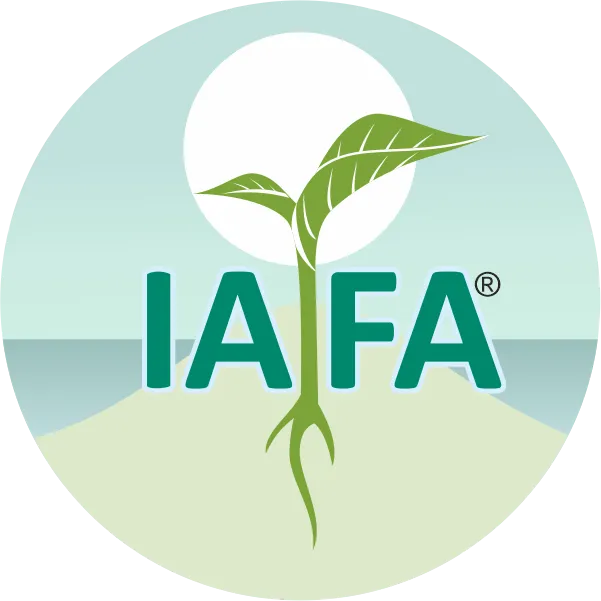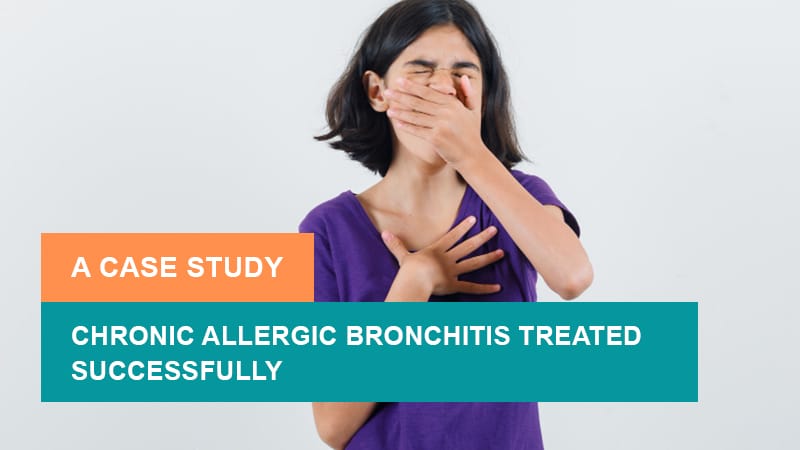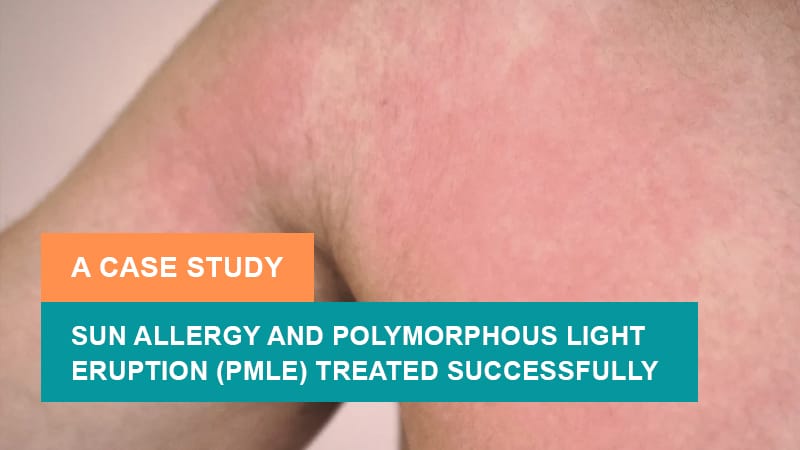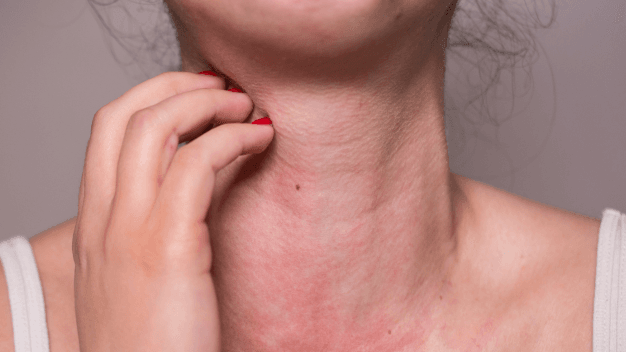On This Page
Mold Allergy – Causes, Symptoms & Ayurvedic Treatment
प्रतिलोमंसिरागच्छन्नुदीर्यपवन: कफम् l
परिग्रह्यशिरोग्रीवमुर: पार्श्वेचपीडयन् l l
Molds are certain fungi that live in moist and damp places both inside and outside the house. Molds reproduce through very small structures called spores. Some people develop an allergy to the spores of molds and it is called Mold Allergy. The spores are light weighed and so spread easily through the air. There are different colors of molds like green, black, white, orange, etc. Mold Allergy may cause various symptoms related to the respiratory system.
In Ayurveda, Vataj Kaphaja Pratishyaya and Tamaka swasa are explained, which have symptoms similar to that of Mold Allergy. It is caused by the vitiation of Vata dosha and Kapha dosha.
Causes of Mold Allergy
There are different types of molds. Some common molds that may cause allergy are Penicillium, Aspergillus, Cladosporium, and Alternaria. When the air containing mold spores is inhaled, the body’s immune system recognizes spores as foreign substances and tries to expel them. As a result, antibodies are produced which cause the secretion of chemicals called histamines. Histamines are the major particles responsible for various symptoms of allergy. Ayurveda says one of the reasons of swasa (dyspnea) as exposure to dust, smoke and wind.
Symptoms of Mold Allergy
Mold Allergy is manifested mainly as symptoms affecting the respiratory system. It will be expressed in different ways by different people. Allergic Rhinitis is the most obvious manifestation. Symptoms of mold allergy include:-
- Cough
- Sneezing
- Itching of eyes, throat and nose
- Post nasal drip
- Dry, scaly skin
- Running nose
In the severe stage shortness of breath, chest tightness, etc. may be felt leading to an Asthmatic condition. Also, mold allergy may result in complications like pneumonia, sinusitis, etc. Sometimes it causes skin abnormalities and rarely systemic illness may be initiated.
Ayurveda explains the symptoms of Tamaka Swasa as cough, hoarseness of voice, running nose, difficulty in breathing, dryness of the mouth. These symptoms will be exacerbated by an increase of Kapha in the body, cloudy weather, presence of water, cold climate, etc. The growth and spread of molds will be increased in these conditions that make the symptoms worse.
Ayurvedic Reference of Vataj Kaphaja pratishyaya (Mold allergy)
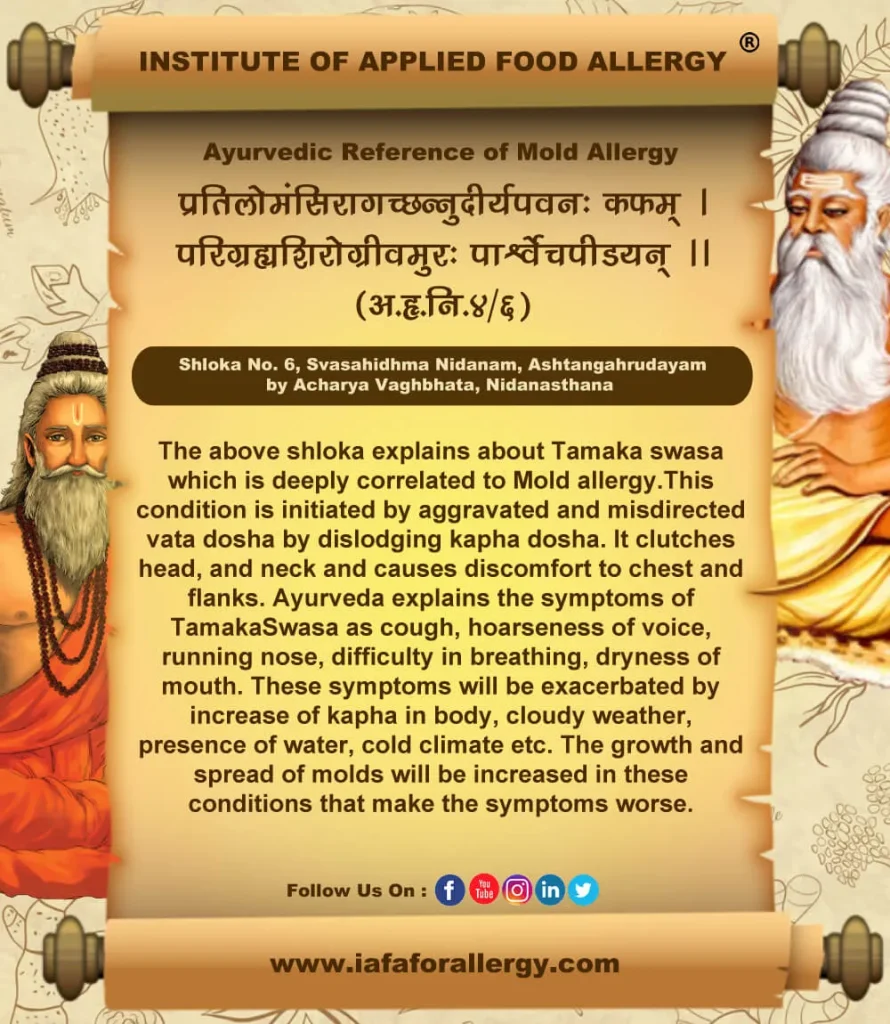

“Dr. Gupta’s IAFA is having unique herbal remedies mentioned in Ayurveda classics for treating Mold allergy effectively. Institute of Applied Food Allergy® is the perfect destination for the Ayurvedic management of mold allergy as well as other allergic conditions”.
Visit us now and attain a completely natural cure!!!
– Dr. Sahil Gupta (B.A.M.S., M.H.A.)
Ayurvedic Allergy Specialist
CEO & Founder of IAFA®
At last, Easier Mold Allergy Management

Trusted by
More than 90,000 Patients

Convenient
at-Home Treatments

9.2 / 10
Customer Satisfaction Score
Ayurvedic Treatment for Mold Allergy
Vata and Kapha doshas are directly involved in the manifestation of Mold Allergy. So Ayurveda focuses treatment on normalizing Vata dosha and Kapha dosha. It also aims in improving the digestive system along with the respiratory system. This is because the occurrence of Swasaroga is related to the dysfunction of both these systems. Ayurveda combines internal medicines, purification therapy, and other treatment procedures to treat mold allergy.
Internal Medicines for Mold Allergy
- Amrutotharam Kashaya
- Elakanadi Kashaya
- Nayyopaya Kashaya
- Indukantham Kashaya
- Kusmanda Rasayana
- Vyoshadi Vatakom
- Avipathi Churna
- Swasanandam Gulika
- Kanakasava
Single Drugs Used in Mold Allergy
Following drugs can be given along with proper Anupama
- Pippali (Piper longum)
- Maricha (Piper nigrum)
- Haridra (Curcuma longa)
- Kantakari (Solanum xanthocarpum)
Purification therapies or Panchakarma procedures are advised after analysing strength of disease as well as patient. This will help to expel vitiated doshas from body. It includes:-
- Vamana (vomiting)
- Virechana (purgation)
- Vasti (enema)
- Nasya (administering nasal drop)
Various treatment procedures are performed based on degree of vitiation and condition of patient. Following treatment procedures can be adopted:-
- Dhoomapana (Inhalation of medicated smoke)
- Swedana (Local steaming)
Diet Management in Mold Allergy
Pathya (Do’s)
- Warm water
- Steam inhalation
- Hot & light food
- Wheat, old rice
- Honey
- Snake gourd or bitter vegetables
- Use of ginger, garlic
- Keeping the house clean & hygienic
Apathya (Don’ts)
- Deep-fried food
- Cold food & drinks
- Suppression of natural urges
- Exposure to humid atmosphere
Yoga Therapy for Mold Allergy
Practice of Yoga is very effective in increasing the functionality of the body as well as the mind. It strengthens the immune system. Following asanas (postures) can be practiced:-
- Savasana
- Bhujangasana
- Urdhwa mukha Swanasana
- Phalankasana
- Trikonasana
Pranayama is also very important & effective in the management of mold allergy. It clears channels through which air passes and helps to overcome the obstructions. Thus, it enhances the performance of the respiratory system.
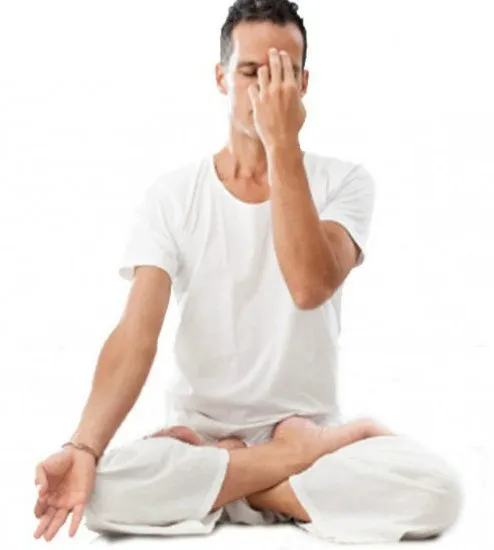
Frequently Asked Questions
Question: What is Mold?
Answer: Mold is a type of fungi that lives in moist and humid areas.
Question: How does Mold Cause Allergy?
Answer: Molds reproduce through tiny particles called spores that travel through the air. These spores enter the respiratory system through breathing air and activate the immune system to cause allergic reactions.
Question: Is Ayurveda Effective in the Management of Mold Allergy?
Answer: Yes, Ayurveda is very effective to get rid of mold allergies. Ayurveda advocates a combined therapy of internal medicines and medical procedures to cure allergies.
Question: What is the Ayurvedic view point on mold allergy?
Answer: According to Ayurveda, allergies such as mold allergy are caused due to the toxins that clog the channels of the body. When the channels of the body are blocked, nutrients are not delivered properly to the cells and body’s immune system for resisting the allergens become overwhelmed.
Question: What is the cause of mold allergy according to Ayurveda?
Answer: In respiratory allergies, a sub-dosha of Kapha known as Shleshak Kapha is responsible for maintaining moisture in the upper respiratory tract. The Ama (impurities) in the body combine with Shleshaka Kapha to form a sticky toxin known as Shleshma which starts to fill the sinus cavities and respiratory tract.
Question: How Ayurveda can help in mold allergy?
Answer: According to Ayurveda, just quelling the symptoms is not enough. The long-term solution is to delve into the root cause of allergen levels and building up the body’s immune system to effectively withstand the allergens like mould.
Question: What is the Ayurvedic treatment of mold allergy?
Answer: Ayurvedic approach to mold allergy involves detoxification i.e., removing toxins from the body and strengthening the body’s immunity. The Ayurvedic treatment helps in blocking the toxic reactions in the body, improving digestion and decreasing sensitivity to allergens by nourishing and purifying the digestive system.
Question: What is the role of diet in mold allergy?
Answer: Regular intake of spices with anti-allergy effect can reduce the vulnerability to mould allergy as these spices contain allergy-fighting phytochemicals, flavonoids, phenols etc. So, including herbs and spices such as turmeric, cumin, coriander, etc, useful.
References
- Shloka No. 6, Svasahaidhma Nidanam, Ashtangahrudayam by Acharya Vaghbhata, Nidanasthana.
- Anonymous. Ayurvedic Pharmacopeia of India Part – II (Formulation) 1st ed. Volume I, Department of AYUSH; New Delhi, India: 2007.
- Sushruta, Uttartantra 24/67, Sushruta Samhita Dalhana Commentary Nibandh Sangraha, Ed. by Vd. Jadavaji Trikamji Acharaya & Narayana Ram Acharya, Chaukhamba Surbharati Prakashan, Varanasi, 2008.
- Sahil Gupta, Ayurvedic Aspects of Allergies and Fungal Infections, Edition 2021, Mold Allergy Chapter No. 6, Page No. 39-43.
Dr. Gupta’s IAFA aspires to be the destination of choice for people seeking authentic Ayurveda healthcare. IAFA ensures that our health care system better meets the needs of all about your health.
Uncompromising Excellence. Commitment to Care…!!! Dr. Gupta’s IAFA for your future health.
Was this Page Helpful?
So IAFA Root-Cause treatment of your Mold Allergy is just 3 steps away!

01. Connect With Us
Share your history of illness or Book your appointment

02. Consult With Us
Dr. Gupta a certified Ayurvedic Allergist Consultant

03. Root Cause Treatment
Get an accurate diagnosis, medicines, diet & lifestyle change
Mold Allergy – Case Studies
Real Case Studies of Successfully Treated Patients from All Around the World by IAFA Ayurveda®

9 Year Old Female Patient Recovered from Chronic Allergic Bronchitis – A Case Study
This case study presents a 9-year-old female patient who has successfully recovered…

12-Year-Old Child Recovered from Sun Allergy and Polymorphous Light Eruption (PMLE) – A Case Study
This is a case study of a 12-year-old child who has successfully…

40-Year-Old Female Patient Recovered from Dyshidrotic Eczema and Onychomycosis – A Case Study
This case study highlights the successful recovery of a 40-year-old female patient…

40-Year-Old Female Patient Recovered from Urticaria and Angioedema – A Case Study
This case study focuses on a 40-year-old female patient who has successfully…
Read More Articles

Mast Cell Diseases
Discover Ayurvedic treatment for Mast Cell Diseases, including types, causes, symptoms, and…

High Immunoglobulin-E (IgE) Levels
Discover Ayurvedic treatment for high Immunoglobulin-E (IgE) levels. Learn about the causes,…

Histamine Intolerance
Discover Ayurvedic treatment for histamine intolerance, its causes, symptoms, and natural treatment.…

